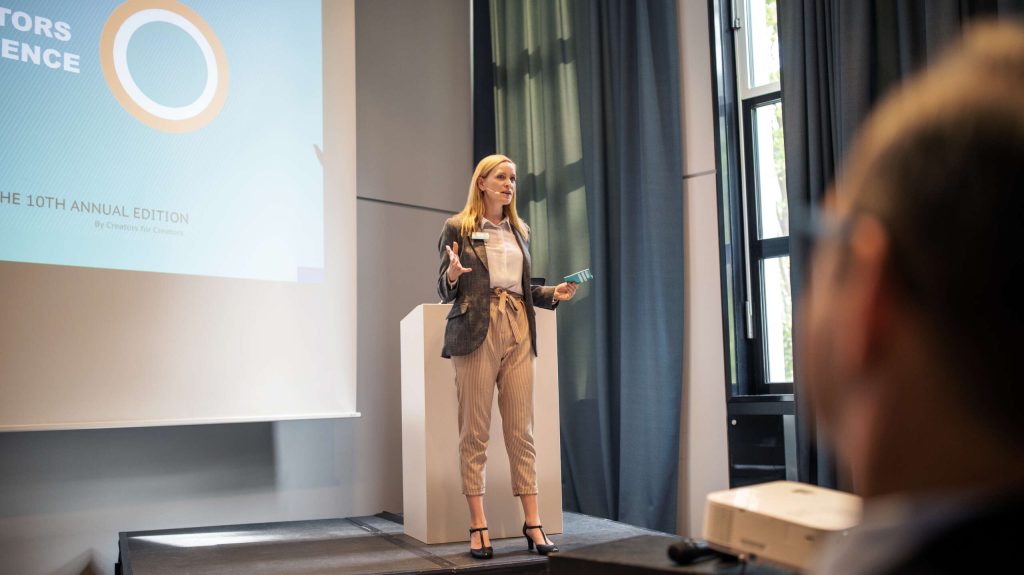


Effective leadership plays a crucial role in the hospitality industry and the success of hotels, restaurants and entertainment organizations. From supervisors to managers, anyone leading a team must be able to demonstrate leadership abilities.
If hospitality careers excite you, learning more about key skills for effective leadership can enhance your capabilities and opportunities for a life-long path in the hospitality business.
In this guide, we share what effective leadership is and offer insight into essential leadership competencies, including visionary thinking, effective communication, emotional intelligence and team building and collaboration.
What is effective leadership?
Effective leadership is a manager’s or leader’s ability to motivate, inspire and direct a group of people. Leaders who possess effective leadership capabilities frequently demonstrate skills such as emotional intelligence, adaptability and resilience, which all contribute to business success.
Why are skills for effective leadership important?
Effective leadership skills are important for many reasons. When leaders demonstrate effective leadership, those working in hospitality are more likely to feel happier in their roles, which contributes to higher staff retention rates, trust, employee happiness and commitment.
Leadership skills also increase team productivity, with employees working more cohesively together to meet goals, which in turn contributes to return on investment and profitability.
What are the skills for effective leadership?
If a career with a focus on leadership appeals to you, there are several key skills for successful leadership you’ll need to acquire and demonstrate. Many of these can be learned via hospitality degrees and hospitality internships.
To support you in learning about what makes a great leader in hospitality, we delve into some of the most important skills for effective leadership below.
Visionary thinking
Trends and consumer needs are constantly changing in the hospitality industry. For hospitality leaders, visionary thinking means they’re able to create dynamic concepts and ideas, communicate these with other people, implement strategies to achieve them and support the organization in gaining a competitive advantage.
How can I develop my visionary thinking skills as a leader?
As a leader, developing visionary thinking skills includes:
- Considering different perspectives
- Thinking outside the box
- Staying up-to-date with industry trends
- Adopting a growth mindset
- Encouraging creative thinking and new ideas from other people
- Actively listening to others
What are some real-world examples of visionary leaders in the hospitality industry?
Real-world examples of visionary leaders in the hospitality industry include those who have built successful hotel chains and tourism organizations by persevering with their goals and ambitions regardless of their background, setbacks or other challenges.
For example, Rick Caruso, chairman and CEO of The Caruso Companies, has become an innovative leader in the hospitality sector through his innovative and impeccable approach to developing luxury hotels, retail, and mixed-use properties that provide guests with remarkable, world-class experiences.
Alan Fuerstman, founder, chairman, and CEO of Montage Hotels & Resorts, is another great example of a visionary leader in the hospitality industry. He has been hailed as a leader in his field for his unwavering dedication to creating positive service cultures and championing sustainability and social responsibility. He stands as an inspiration to many looking to make a positive impact in the industry.
What can happen if you don’t have strategic decision-making?
Common pitfalls in strategic decision-making include a lack of effective communication, personal bias, a lack of data or evidence to back decisions up and conflict among teams.
How can leaders develop effective decision-making skills?
Developing effective decision-making skills involves acquiring leadership proficiencies and completing leadership skill training programs. Decision-making can also be developed through work experience.
Are there any frameworks or models that can aid in strategic decision-making?
There are several well-regarded leadership competency frameworks and models that can help you become an effective and decisive leader.
- The Leadership Challenge: This framework focuses on five essential skills for successful leadership. These are challenging the process, creating a shared vision, enabling others to succeed, modeling excellence in action, and nurturing enthusiasm.
- The 360-Degree Feedback Model: This model examines a person’s leadership competencies by collecting feedback from multiple sources.
- The Competencies of Effective Leadership Model: This model outlines 14 critical competencies for a successful leader, such as communication, strategic planning and decision-making.
- The McKinsey 7-S Framework: This is a framework that’s used to assess the effectiveness of an organization and looks at seven key elements that impact its success, such as shared values, skills, style, staff, strategy, structure and systems.
Effective communication

Communication is one of many effective leadership techniques. When leaders demonstrate excellent communication, they can engage with others and build trust-based working relationships.
It’s important to realize your ability to communicate as a leader doesn’t just include verbal cues. Effective communication also includes your ability to actively listen, express empathy and engage with people to ensure they understand what is being said and feel understood.
What are the key elements of effective leadership communication?
The key elements of effective leadership communication are:
- Active listening
- Understanding
- Empathy
- Conciseness
- Clarity.
How can leaders improve their active listening skills?
Active listening is all about listening to understand rather than listening to respond. To improve this important soft skill, leaders can:
- Use reflective listening skills
- Ask questions
- Reflect and summarize.
Emotional intelligence
Emotional intelligence, or EQ as it’s sometimes known, is a skill that increases a leader’s ability to understand their own and other people’s emotions.
As well as comprehending how other people feel, developing your emotional intelligence means you can support others better. You’ll also find it easier to build trust-based relationships and navigate conflict.
What are the benefits of emotional intelligence in leadership?
The following are all benefits of emotional intelligence in leadership:
- Better interpersonal relationships
- More productive team relationships
- Less workplace conflict, improved staff well-being
- Trust and staff engagement.
Can emotional intelligence be developed over time?
Like other skills, emotional intelligence is something you can develop over time. It starts with understanding your own emotions and how they relate to behavior.
As you become more comfortable with recognizing and managing your own emotions, you can start to work on improving your ability to understand and recognize the feelings of other people and respond appropriately.
Developing empathy is also an important part of emotional intelligence. Practice active listening skills, ask open-ended questions to gain a better understanding of what other people are feeling, and give them an opportunity to express themselves.
Adaptability and resilience
Many internal and external factors can affect organizations and their staff and even morale and output. Cultivating leadership capabilities such as adaptability and resilience are among the skills for an effective leadership style that assists in maintaining a productive work environment.
When it comes to adaptability and resilience, examples of leadership skills include navigating periods of uncertainty and smoothly adapting to any changes that these may cause. Resilience means you can bounce back from conflict and hardship more effectively and efficiently.
How can leaders become more adaptable in a fast-paced environment?
Becoming more adaptable includes prioritizing tasks, being flexible, being open-minded, welcoming change and seeking feedback. Having contingency plans can also support leaders in becoming more adaptable in a fast-paced environment.
What are some techniques to build resilience as a leader?
Valuing emotional intelligence, developing communication skills, reflecting on events and learning from them and leading with a growth mindset can help you build strong leadership skills, including resilience.
Team building and collaboration
Team building includes engaging team members, encouraging them to communicate and resolving workplace conflict when it arises. Most importantly, team building and collaboration are about building a culture of inclusivity where everyone feels safe to express their thoughts, ideas and opinions and can contribute.
What are the key factors in building a successful team?
Some of the key factors to consider when developing a successful team include:
- Facilitating and encouraging open communication
- Creating a positive organizational culture where everyone is valued and heard
- Offering feedback and being open to receiving feedback
- Team member diversity and inclusion
It’s important to remember building a successful team takes time and patience. As a leader, there may be times when you face setbacks, but how you navigate these and support your team will demonstrate your effective leadership skills.
How can leaders improve collaboration in their teams?
Improving collaboration among team members starts with enhancing communication and trust. It also includes sharing visions and goals for the organization, as this gives a team something to work towards.
Increasing collaboration can also include taking advantage of internal or external team coaching if the team has been experiencing conflict or has found it challenging to achieve organizational goals.
Influencing and negotiation

In any industry, the ability to influence and negotiate is a crucial leadership skill for managing teams and working with stakeholders. There will be occasions as a leader when you’ll need to influence stakeholders or employees to get them on board with your vision for the future of the organization.
Similarly, your ability to negotiate and persuade can have a long-lasting impact on an organization. As well as supporting conflict resolution, negotiation can help you create a workplace where everyone thrives.
What are the key principles of effective negotiation in leadership?
Effective negotiation requires you to have a clear outcome or vision. Other key principles include:
- Creating a plan and demonstrating how it will work
- Offering stakeholders the opportunity to see the benefits first hand
- Providing evidence that supports your vision
How can leaders enhance their influencing skills?
Some ways to become an influential leader include:
- Listening to other people
- Developing better workplace relationships
- Building rapport with stakeholders
- Enhancing emotional intelligence.
Education required for effective leadership
If you’re interested in a leadership position in the hospitality industry, completing a hospitality degree or a degree in hotel management is a fantastic place to start. These degrees provide insight into the many skills leaders require and deliver intense hospitality leadership training through internships.
Launch your leadership career.
Our bachelor’s in international hospitality business combines world-class learning with industry experts and priceless practical leadership experience through exclusive internships in leading hospitality organizations.
bachelor of international business
Take your leadership skills to the next level at a hospitality school in Switzerland.
Refine your leadership qualities and traits and gain access to the secrets of effective leaders with a master’s in international hospitality business.
Masters in hospitality
Continuous learning and growth
While enhancing leadership performance and learning leadership skill development strategies through education is a must, staying on top of careers with a business management degree and your leadership skills requires continuous learning and growth.
Change is constant and effective leadership skillsets change too. What makes a great leader today may differ from what makes a strong leader tomorrow. But with ongoing learning and adopting a growth mindset, you’ll have the opportunity to develop more effective leadership skills and insights throughout your career.
What are some strategies for continuous learning as a leader?
Learning and growth as a leader can include asking for feedback and reflecting on your techniques. It can also include continued professional development, such as leadership skill training programs, completing a leadership skill assessment and working with a leadership coach who can support you in your leadership capabilities and aptitudes.
Conclusion
Core skills for effective leadership vary, but some of the most important include visionary thinking, adaptability, resilience and team building. With these skills, you’ll not only hone your own capabilities, you’ll also be better equipped to aid and guide a team of talented individuals.
If you’re passionate about the hospitality industry, supporting others and contributing to an exciting field, a career in leadership is for you. Take the first step in developing effective leadership skills and learn more about our hospitality school in Switzerland by contacting us today.
Photo credits
Main image: LukaTDB/E+ via Getty Images
















